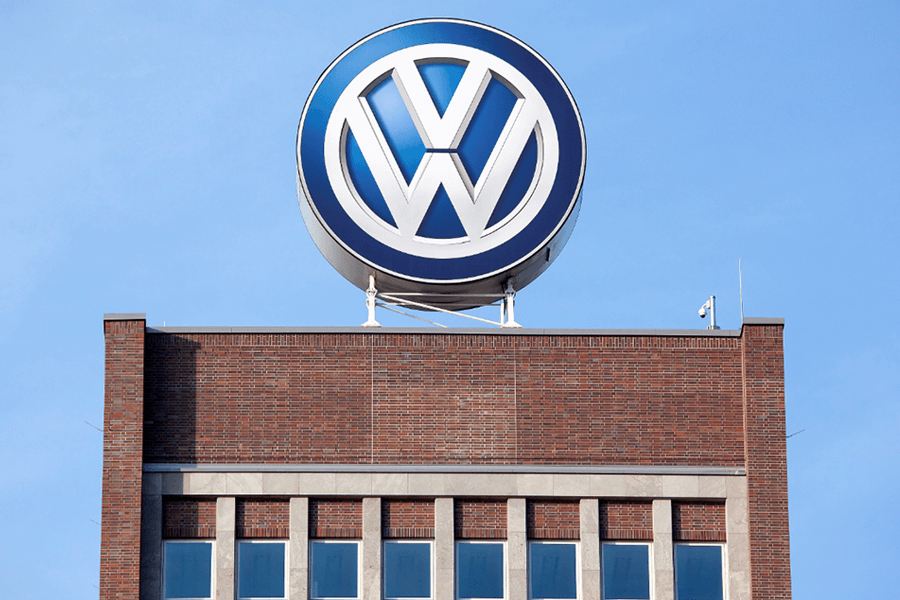Volkswagen makes plans new BEV factory near Wolfsburg
Volkswagen may build a completely new factory in Wolfsburg for its next generation of electric cars (project ‘Trinity’). The source for this is none other than VW brand manager Ralf Brandstätter. A decision is to be made in December.
A brief review: In October there were reports that VW was considering building a new assembly hall for Trinity production within the Wolfsburg plant. Specifically, a car park next to Hall 54 was mentioned as the location. A short time later, German media reported that there were a total of three options. In addition to the production hall, the options also include the construction of a new plant outside the current main factory – the most promising concept, according to the report, is the construction of a completely new factory on the existing factory premises.
VW management itself, however, apparently prefers option 2 outside the main plant. “This is the most promising alternative,” said VW brand manager Ralf Brandstätter at a press briefing on Tuesday. According to Brandstätter, there is a lot to be said for building a new plant on a greenfield site, as it would be much easier to achieve the “necessary, significantly higher productivity targets than in a plant built decades ago”. This is currently being discussed with all those involved in the VW Group, Brandstätter said.
But no decision has been made yet. The supervisory board will make a decision at its next meeting on 9 December. The planning round, at which the model distribution (and thus the capacity utilisation) of the plants will be determined, has also been postponed to this date.
Top management apparently has an annual production of 250,000 vehicles in mind. Brandstätter did not give any details about the construction costs or the number of employees at the new plant. The number of employees in particular depends on the vertical range of manufacture, which has not yet been finally decided, writes the Handelsblatt with reference to the VW brand manager.
As Manager Magazin writes, without citing sources, the new plant is to be “designed for an annual capacity of more than 200,000 cars in the medium term” – but there is also talk of up to 300,000 cars. The strategists in Wolfsburg had examined building the plant on the existing factory site – but such numbers probably failed due to logistics, which is why an expansion is apparently more economical.
The production of electric cars at the main plant in Wolfsburg had recently become an internal political issue. In view of the strong demand for the MEB models built in Zwickau, the works council under Daniela Cavallo demanded EV production in Wolfsburg even before the start of Trinity 2026. For the planning round meeting on 9 December, one scenario is reportedly for Wolfsburg to contain the MEB overflow production from Zwickau.
Conflict with the works council not yet over
The plans for a second Wolfsburg plant – although not yet decided – incidentally meet with the approval of the works council. “By building a second plant in Wolfsburg, we are securing employment here,” Cavallo wrote in an employee newsletter. The plans were “courageous and therefore exactly right”.
Cavallo also repeated the demand to bring the production of an electric model of the current ID. series to Wolfsburg “as quickly as possible” in order to better utilise the old main plant and secure jobs there. So the conflict is not over yet, because according to Handelsblatt, Brandstätter is planning differently: only when the Trinity production is up and running in the new plant, VW wants to start converting the existing main plant to electric cars “probably in 2027”. There, mainly Golf and Tiguan are built on four lines.
According to the German business newspaper, Brandstätter hinted that for the time being two of the four lines will be converted to e-production. By the 2030s, Wolfsburg could then build 250,000 internal combustion cars a year – and 250,000 electric cars on the other two production lines at the main plant. With the 250,000 vehicles from the new plant, Wolfsburg’s production would thus be around 750,000 vehicles per year.
reuters.com, manager-magazin.de (in German), handelsblatt.com (in German)





0 Comments